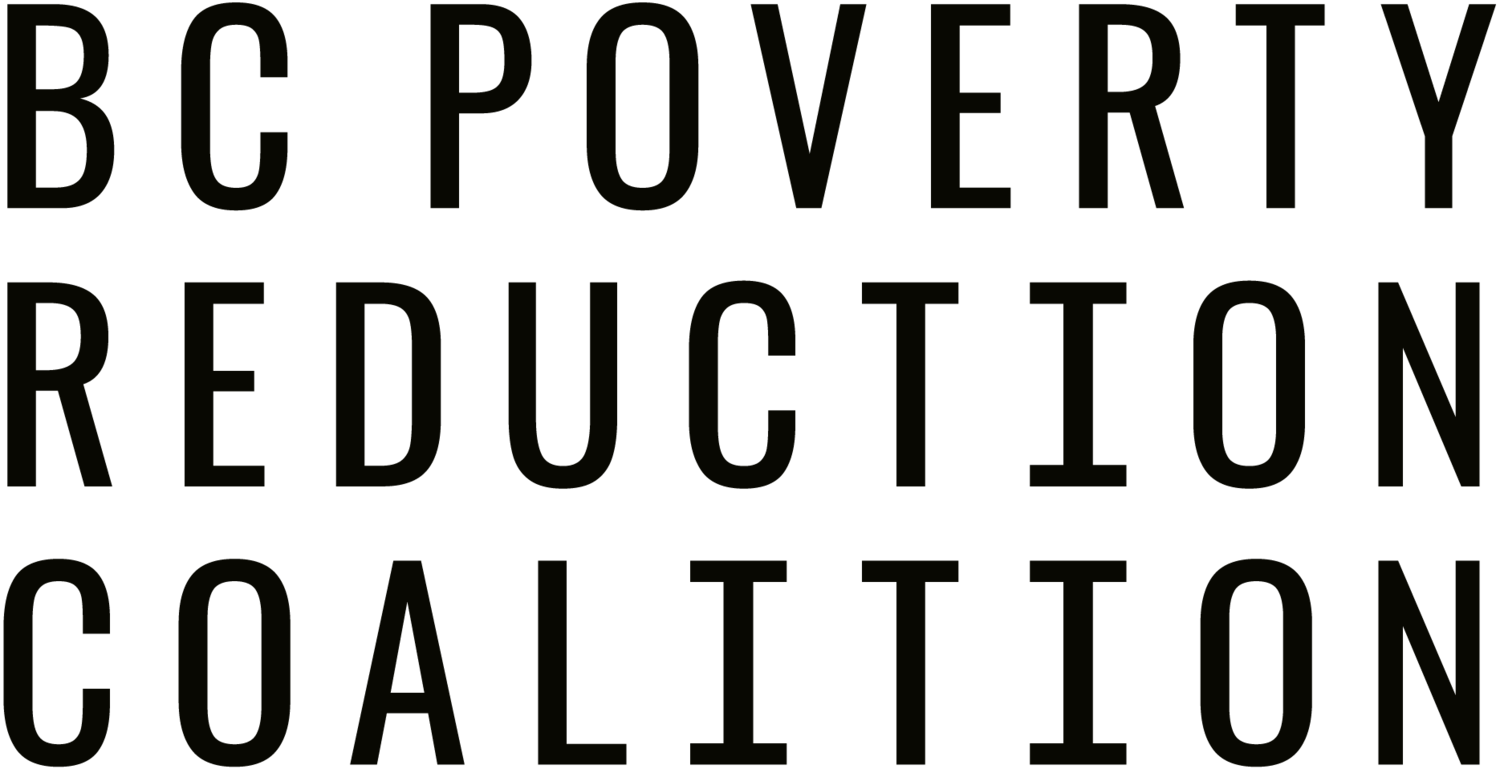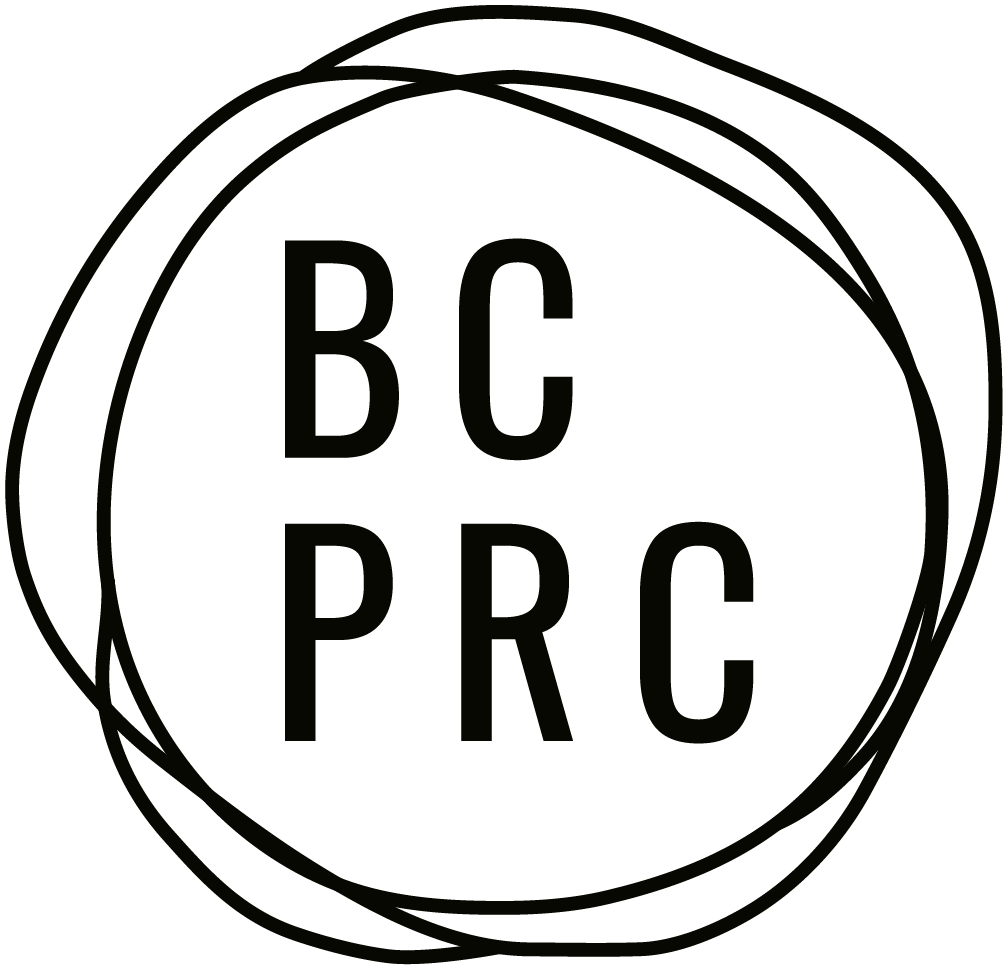BCPRC submission re: Provincial poverty reduction plan Review, April 2023
April 18, 2023
This submission advocates for an approach that includes increased financial and social supports for people experiencing poverty and measures to reduce the cost of living for all who call BC home. It focuses on seven “big mover” policy priorities that would profoundly change BC’s social fabric and well-being by largely eliminating deep poverty within five to seven years.
1: Raise social and disability assistance rates to the poverty line
Context/rationale: The gap between social and disability assistance rates and the poverty line is wide, despite several modest incremental increases to these benefits in recent years. Many voices have long called on the province to raise social assistance rates substantially.
Actions needed:
Increase social assistance and disability assistance actual rates to the poverty line (Market Basket Measure) as a centrepiece of the 2024 BC Budget and index rates to changes in the poverty line.
Combine the shelter and support allowance components of social and disability assistance payments.
Substantially increase earnings exemptions for those receiving social and disability assistance and end the clawback of unearned income.
2: Transform the province’s income support system, drawing on the BC Basic Income Panel’s recommendations
Context/rationale: Social assistance is part of a larger income support “system” in BC but is fragmented and needs transformation. In 2018, the provincial government appointed an expert panel to investigate the feasibility of a basic income as a potential tool for poverty reduction in BC. Following rigorous and extensive research, in December 2020, the panel issued a comprehensive report with detailed recommendations for creating a more cohesive income support system that includes basic services and targeted cash transfers.
Actions needed: Draw on the BC Basic Income Panel report recommendations, which provide a roadmap for a cohesive provincial income security system.
The BC Basic Income Panel report is extensive and includes 65 recommendations, including reforming social assistance (Temporary Assistance) to reduce the “welfare wall”; providing extended health benefits for low-income people in BC; enhancing support for low-income families with children; increasing housing for people fleeing violence; mandate a ministry to support former youth in care; and others.
In addition, we call for an end to the spousal cap restrictions on social assistance, which force disabled individuals to be financially reliant on romantic or intimate partners.
Implement the Red Women Rising report recommendation for residential school survivors to have a guaranteed livable income and housing for the rest of their lives.
3: Address discrimination and stigma by adding social condition as protected grounds to the BC Human Rights Code
Context/rationale: Living in poverty is not a choice that individuals make for themselves – legislative and policy failures create and sustain poverty. People living in poverty and sheltering in public spaces, people who use drugs, people with low incomes, sex workers, and others from marginalized communities experience discrimination based on social conditions, trapping them in cycles of criminalization and further impoverishment.
According to the BC Office of the Human Rights Commissioner (BCOHRC), “while many of those discriminated against based on social condition also have other intersecting characteristics, such as race or disability, protected by the B.C. Human Rights Code, many people face social or economic disadvantage who cannot avail themselves of these protections”. This addition would support a human rights approach to reducing the stigmatization and criminalization of poverty.
We hear from people with lived experience of poverty that employers, landlords, housing providers, and others continue to discriminate against people based on factors like their postal code, income, drug use, sex work etc. The addition of social condition to the human rights code would create better legal rights and conditions for people experiencing intersectional poverty across BC.
Actions needed:
Work with the BC Office of the Human Rights Commissioner, PIVOT Legal Society, and other groups to add “Social Condition” to the B.C Human Rights Code as a prohibited ground for discrimination.
Require public institutions and services to audit their policies and practices to match an updated provincial Human Rights Code that includes social condition, including bringing municipal by-laws and hearings processes into compliance.
4: Accelerate a massive expansion of affordable non-market housing
Context/rationale: The housing crisis deprives many British Columbians of the right to secure affordable housing, with people in poverty among those most severely impacted. According to Statistics Canada data, BC has the dubious honour of ”leading the country as the province with the highest rate of unaffordable homes.” The lack of a supply of new, actually affordable rental housing amid an ultra-low vacancy is increasing the pressure on renters.
Actions needed:
We echo the CCPA-BC’s call for a province-wide plan to build new dedicated, non-market affordable housing that aims for a quarter million units over the next decade or 25,000 new non-market units per year.
Implement vacancy control across BC. Low vacancy rates are a crucial predictor of homelessness in the US, and we know when there is a housing shortage, people get squeezed down the housing spectrum and into homelessness.
Increase the province-wide stock of all forms of social housing, including accessible units, and ensure the right to housing for marginalized groups, in particular, Indigenous people, women, and children experiencing or fleeing relationship violence, disabled people, youth leaving care, children, low-wage workers, single parents, trans and gender non-conforming people, and others who experience deeper poverty in BC.
Ensure SROs have acceptable standards of housing, which must include the right to heating and cooling as mitigation tools for extreme weather and adequacy as outlined in the Rights To Housing human rights framework. Adequacy means addressing long-term issues such as black mold, rodents, pests, broken elevators, and other erosions to the quality of SROs, shelters, and social housing.
Deploy no-cost income-qualified retrofit programs at scale to ensure all British Columbians can benefit from energy-efficient and climate-resilient homes.
Enable energy security for all, addressing affordable access to essential energy services like heating, lighting, and cooking.
Design systems to address the immediate impacts of homelessness by employing a person-centred approach that considers the intersectionality of the barriers experienced by each individual while safeguarding their inherent dignity and personal autonomy.
5: Prioritize targeted Indigenous Poverty Reduction Measures
Context/rationale: In BC, as elsewhere in Canada, poverty rates are much higher for Indigenous people, including Indigenous children. According to the 2022 BC Child Poverty Report, “The overall child poverty rate on 59 BC First Nations reserves in 2020 was 29.2%, more than twice as high as the overall child poverty rate, with at least 3,900 children living in poverty. And the child poverty rate on rural reserves was 33.9%, much higher than the 25.2% rate on urban reserves.” Poverty perpetuates the 2SMMIWG (Missing and Murdered Indigenous Women, Two-spirit Peoples, and Girls) crisis.
Actions needed:
We support the BC Association of Aboriginal Friendship Centres calls on BC to “commit to developing an Indigenous specific poverty reduction plan, within a decolonizing anti-racist lens, complete with specific goals, targets, timelines and accountabilities”.
The Native Women's Association of Canada has put forward a suite of recommendations, including “investing in Indigenous-specific services that are culturally relevant in social service areas such as reintegration and bridging programs for incarcerated Indigenous women, addiction and detox centres, housing and shelter supports, child care, and employment centres.” Indigenous-specific programs, run by and for Indigenous peoples and communities, must be part of reconciliation in the context of poverty reduction in BC.
Implement the Red Women Rising recommendation to implement human rights, Indigenous rights, and gender-based analysis in the conception and implementation of all poverty reduction strategies, policies, legislation, and decision-making.
Implement calls to action within provincial jurisdiction from the Truth and Reconciliation Commission and the National Inquiry into Murdered and Missing Indigenous Women and Girls, and implement recommendations from the Income Supports and Indigenous Peoples in BC report.
6: Make public transit fare-free and create a publicly-owned intercity and inter-regional bus service
Context/rationale: In 2021, the BC government made public transit free for children and youth under 12. This commendable decision should be extended to make public transit fare-free to all riders. A reliable, affordable, and dignified service intersects broad issues like climate, poverty, and disability: saving money, taking cars off of streets, speeding up climate action, and creating a barrier-free transportation option for all community members. Eliminating fares would reduce the criminalization of poverty – and money spent on policing fare evasion could be redirected to increasing service capacity for more riders and service routes.
Action needed:
Eliminate fares for all public transit riders in BC, starting with children and people in poverty.
Roll back privatization and put the public back in public transit, including making BC ferries fare-free or sliding scale for travel.
Invest in increased infrastructure and service, including improving service and safety by establishing 24/7 bus routes.
Expand and improve an inter-city and inter-regional bus service.
Add safe homes and emergency phone booths, and improve cell phone connection along all the highways connecting Northern BC to mitigate the MMIWG2S crisis.
Improve transit infrastructure, including expanded HandyDART infrastructure and accessible transportation options, which should also be fare-free.
Consider special accommodations for fly-in, northern, and remote communities.
7: Close the gap between living wage and minimum wage
Context/rationale: The provincial government’s decision to increase the minimum wage in 2022 in line with inflation (over the prior calendar year) was positive and should continue. However, there is no rationale for how the minimum wage is set in the first place, and the disparity between the minimum and living wages is substantial. The living wage is calculated based on a family’s basic needs for housing, child care, food, transportation and other minimum living costs in a specific community. It considers the offsetting impact of government income supports and public services like child care that concretely reduce out-of-pocket costs. If implemented, other policy recommendations in this submission would offset future increases in the living wage by reducing the cost of living (ex., fare-free transit, increasing the supply of affordable rental housing).
Actions needed:
Close the gap between BC’s current minimum wage rate of $15.65, the Metro Vancouver living wage rate of $24.08, and Victoria’s Living Wage rate of $24.29 an hour by 2026 with regular annual increases to reflect changes in the cost of living.
In the meantime, commit to the BC government becoming a living wage employer to tackle low wages in the public sector and contracted partners and to set a leading example.
Create more employment opportunities for Peer Work for people who cannot engage in traditional forms of employment. Ensure the minimum wage and other employment standards applies to farm workers, Peer Workers and others who may be excluded, including those in the gig economy.
—
By no means should these be the only policies considered; we do not map every key poverty reduction lever in this submission, but note, in particular, the excellent work done by the BC Basic Income Panel, along with the many essential recommendations brought forward by PRC member organizations, lived experience experts, and others. Poverty is not inevitable - it is a policy choice, not an individual choice; a poverty-free BC is possible.
Read our full submission, and amplify our policy goals through a written submission to the Together BC Poverty Reduction Strategy Review before April 30, 2023.





